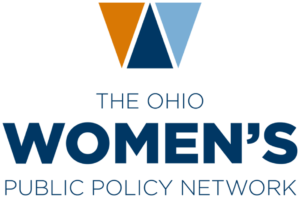WPPN Urges Passage of Ohio House Bill 61 – Elimination of the “Tampon Tax”
Tuesday, October 10th, 2017
Earlier today, the Women’s Public Policy Network Managing Director Erin Ryan gave testimony in front of the Ohio House Ways & Means Committee in support of Ohio House Bill 61. The bill, which has gained bi-partisan support in the House, would eliminate the sales tax on tampons and other feminine hygiene products so that they are treated the same as other medically necessary products, rather than a ‘luxury item.’ Rep. Brigid Kelly, the bill sponsor, estimates that eliminating the tax would save an average Ohio woman $632.50 over her life. Erin’s full testimony is included below.

PROPONENT TESTIMONY OF:
Erin Ryan
Managing Director
The Ohio Women’s Public Policy Network
IN SUPPORT OF:
HB 61 – Sales Tax
Exempt feminine hygiene products from sales tax
House Ways and Means Committee
Chairman Schaffer, Vice Chair Scherer, Ranking Member Rogers, and members of the Ohio House Ways and Means Committee, thank you for the opportunity to come before you today and testify in support of Ohio House Bill 61 – to exempt tampons and feminine hygiene products from the Ohio sales tax.
My name is Erin Ryan and I am a policy analyst with a focus specifically on issues affecting women and families at the policy and advocacy non-profit Innovation Ohio Education Fund (IOEF). In my role, I serve as the Managing Director of the Ohio Women’s Public Policy Network (WPPN), a coalition convened by IOEF and comprised of over 25 advocacy organizations working collaboratively to promote public policies that create economic security for women and strengthen families.
In order to make a meaningful impact, The Women’s Public Policy Network believes that policymakers must advance public policy that addresses the following issue areas:
- Promoting an economic security agenda for women;
- Ensuring fairness and opportunity in the workplace; and
- Improving women’s health and well-being
Together, we aim to bring a gender lens to policy discussions debated in the state legislature, and we focus that work under an economic frame. That is why I stand here today to offer our support for House Bill 61, and to give a voice to the tens of thousands of Ohio women that we represent across the state who would benefit greatly from passage of this bill.
Some of the poorest households in our state depend on a female earner. In 2015, women were the sole provider in 1 out of every 3 Ohio households living at or below the poverty level. And women already suffer from a gender wage gap in which they are paid – on average – just 75 cents to every dollar paid to their male counterparts.
Ohio, like many other states, exempts certain things like food, rent, and medicine from the sales tax because we identify that these represent basic necessities of everyday life.
For women, menstrual supplies are a basic necessity. In fact, the Food and Drug Administration categorizes tampons and pads as “medical supplies” and regulates their sale accordingly. Imposing a tax on essential medical supplies that are exclusively used by women is, in effect, taxing us for being women.
The average woman experiences 456 menstrual periods over 38 years of her childbearing life, using nearly 17,000 tampons and pads during that time. These products represent an additional living expense that women must deal with, and as a result, it impacts their family and their economic security. American women will spend in excess of $2 billion this year on menstrual supplies, and states will generate over $120 million in annual sales taxes on these purchases.
As you know, sales taxes impose the greatest burden on people who earn the least. In the past, when our tax laws were written by mostly, if not exclusively male legislators, menstrual supplies were treated as a hygiene or luxury item or not considered at all when contemplating essential basic needs. As recently as 2015, only 10 states exempted menstrual supplies from taxation — five of them intentionally, while the other five do not levy a sales tax at all.
However, as more policymakers recognize that menstrual supplies are, in fact, a basic necessity, that is starting to change. Fifteen states and the District of Columbia considered legislation last year to exempt menstrual supplies from taxation. Four of these: New York, Connecticut, Illinois and DC enacted these policies into law. The nation of Canada also recently exempted the purchase of menstrual supplies from taxation.
Ohio exempts some basic necessities from the sales tax exemptions, but it also carves out exceptions for what could arguably be considered luxuries. Today, you do not pay the Ohio sales tax when you buy a newspaper or adopt a pet from a shelter. While arguably of some social value, neither of these purchases are necessities. Ohio also exempts the sale of breath mints, race cars, and parts for private jets. The value of a trade-in on a new boat or luxury car is exempt from the sales tax, as is the purchase of rare coins by collectors. It would be hard to argue that rare coins and private jets are any more essential to the life of ordinary Ohioans than menstrual supplies.
Ideally, women wouldn’t have to pay to purchase menstrual supplies at all, at least in places of public accommodation. They should be provided in every public restroom alongside toilet paper and soap. But the legislation before you today is an important first step towards removing a needless financial burden from the shoulders of Ohio women.
Once again, Chairman Schaffer Vice Chair Scherer, Ranking Member Rogers, and members of the Ohio House Ways and Means Committee, thank you for the opportunity to testify. I would be happy to answer any questions.